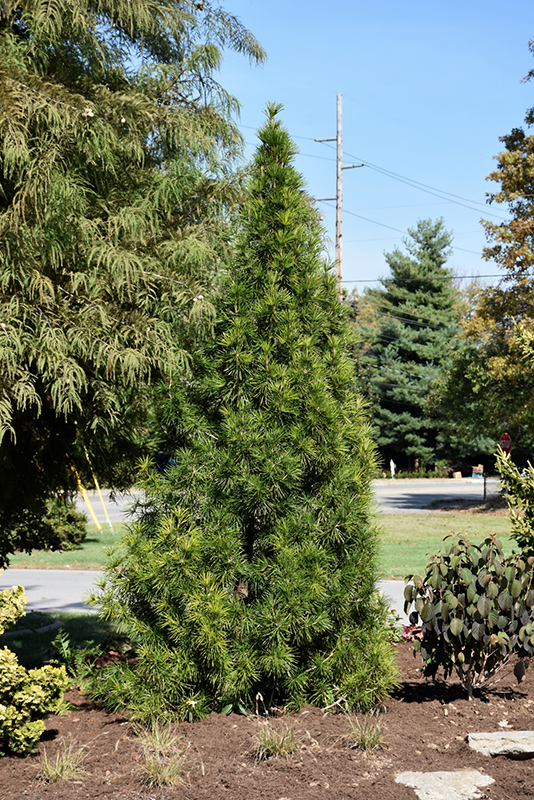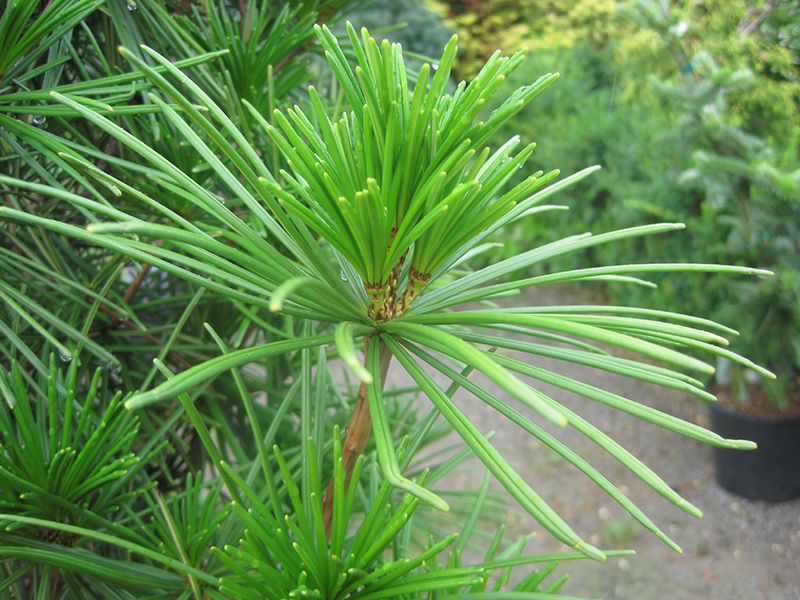>> Home
Joe Kozey Umbrella Pine
Sciadopitys verticillata 'Joe Kozey'
Height: 20 feet
Spread: 5 feet
Sunlight:
![]()
Hardiness Zone: 4
Other Names: Japanese Umbrella Pine, Koyamaki
Description:
One of the finest forms of this species, features a narrow columnar habit and whorls of long green needles; grows slowly and has a surreal pristine form; a beautiful focal point on the landscape
Ornamental Features
Joe Kozey Umbrella Pine has attractive dark green evergreen foliage on a tree with a columnar habit of growth. The large glossy needles are highly ornamental and remain dark green throughout the winter. The brown fruits are held in cones in mid fall.
Landscape Attributes
Joe Kozey Umbrella Pine is a dense evergreen tree with a narrowly upright and columnar growth habit. Its average texture blends into the landscape, but can be balanced by one or two finer or coarser trees or shrubs for an effective composition.
This is a relatively low maintenance tree. When pruning is necessary, it is recommended to only trim back the new growth of the current season, other than to remove any dieback. It has no significant negative characteristics.
Joe Kozey Umbrella Pine is recommended for the following landscape applications;
- Accent
- Vertical Accent
- Windbreaks and Shelterbelts
Planting & Growing
Joe Kozey Umbrella Pine will grow to be about 20 feet tall at maturity, with a spread of 5 feet. It has a low canopy, and is suitable for planting under power lines. It grows at a slow rate, and under ideal conditions can be expected to live for 60 years or more.
This tree should only be grown in full sunlight. It does best in average to evenly moist conditions, but will not tolerate standing water. It may require supplemental watering during periods of drought or extended heat. It is particular about its soil conditions, with a strong preference for rich, acidic soils. It is somewhat tolerant of urban pollution, and will benefit from being planted in a relatively sheltered location. This is a selected variety of a species not originally from North America.

